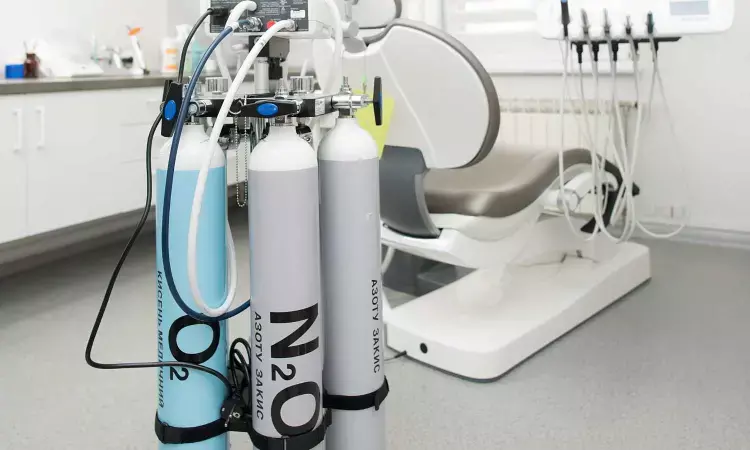- Home
- Medical news & Guidelines
- Anesthesiology
- Cardiology and CTVS
- Critical Care
- Dentistry
- Dermatology
- Diabetes and Endocrinology
- ENT
- Gastroenterology
- Medicine
- Nephrology
- Neurology
- Obstretics-Gynaecology
- Oncology
- Ophthalmology
- Orthopaedics
- Pediatrics-Neonatology
- Psychiatry
- Pulmonology
- Radiology
- Surgery
- Urology
- Laboratory Medicine
- Diet
- Nursing
- Paramedical
- Physiotherapy
- Health news
- Fact Check
- Bone Health Fact Check
- Brain Health Fact Check
- Cancer Related Fact Check
- Child Care Fact Check
- Dental and oral health fact check
- Diabetes and metabolic health fact check
- Diet and Nutrition Fact Check
- Eye and ENT Care Fact Check
- Fitness fact check
- Gut health fact check
- Heart health fact check
- Kidney health fact check
- Medical education fact check
- Men's health fact check
- Respiratory fact check
- Skin and hair care fact check
- Vaccine and Immunization fact check
- Women's health fact check
- AYUSH
- State News
- Andaman and Nicobar Islands
- Andhra Pradesh
- Arunachal Pradesh
- Assam
- Bihar
- Chandigarh
- Chattisgarh
- Dadra and Nagar Haveli
- Daman and Diu
- Delhi
- Goa
- Gujarat
- Haryana
- Himachal Pradesh
- Jammu & Kashmir
- Jharkhand
- Karnataka
- Kerala
- Ladakh
- Lakshadweep
- Madhya Pradesh
- Maharashtra
- Manipur
- Meghalaya
- Mizoram
- Nagaland
- Odisha
- Puducherry
- Punjab
- Rajasthan
- Sikkim
- Tamil Nadu
- Telangana
- Tripura
- Uttar Pradesh
- Uttrakhand
- West Bengal
- Medical Education
- Industry
Diagnosis and management of toxicity linked to recreational nitrous oxide use: Key points

Canada: Nitrous oxide has become a popular recreational drug owing to its low cost and ease of access, particularly among younger people. A recent review, published in CMAJ (Canadian Medical Association Journal), suggests that it can cause functional vitamin B12 deficiency and is an easily overlooked cause of neurologic abnormalities, typically, peripheral neuropathy, myelopathy or encephalopathy.
Salient features key pointsof Nitrous oxide toxicity are -
1.Recreational use of nitrous oxide is a growing problem in many jurisdictions, including Canada.
2. Although isolated, short-term use rarely leads to serious complications, chronic use can cause neurotoxicity that is often not fully reversible; cervical myelopathy, peripheral neuropathy and encephalopathy have been described.
3.The pathophysiology of nitrous oxide toxicity results from functional vitamin B12 deficiency.
4. Elevated homocysteine and methylmalonic acid are potential biochemical markers for the diagnosis, and magnetic resonance imaging and nerve conduction studies can help further define the presentation.
5. Cessation of nitrous oxide is the mainstay of treatment; supplementation with vitamin B12 and methionine are recommended.
"Clinicians should enquire about nitrous oxide use in patients with unexplained findings suggestive of vitamin B12 deficiency or other compatible neurologic symptoms," the researchers wrote in their research which aimed to help clinicians recognize signs of nitrous oxide toxicity.
Cessation of nitrous oxide is the mainstay of treatment; the researchers recommend supplementation with vitamin B12 and methionine.
Also known as “laughing gas,” nitrous oxide is an anaesthetic sometimes used in pediatric and dental procedures. Inexpensive and easily obtainable online, it is increasingly used for a quick high. In the 2021 Global Drug Survey, 10% of all respondents, and 15% of Canadian respondents, indicated having used the drug in the previous year.
“The low cost of and ease of access to nitrous oxide make it a popular recreational drug, especially among younger people,” writes Dr. Cyrille De Halleux, a specialist in internal medicine, critical care and resident at The Hospital for Sick Children (SickKids) and chief fellow in the Division of Clinical Pharmacology and Toxicology at the University of Toronto, Toronto, Ontario.
Chronic use of nitrous oxide can cause functional vitamin B12 deficiency, which can result in long-term health effects, especially neurological consequences. The three most common presentations of toxicity are damage to the spinal cord (myelopathy), nerve damage affecting strength and sensation (neuropathy) and behavioural abnormalities (encephalopathy). Treatment includes stopping the use of the substance, vitamin B12 supplementation and methionine.
“Clinicians should enquire about nitrous oxide use in patients with unexplained findings suggestive of vitamin B12 deficiency or other compatible neurologic symptoms,” the authors conclude.
Reference:
Cyrille De Halleux and David N. Juurlink, Diagnosis and management of toxicity associated with the recreational use of nitrous oxide,DOI: https://doi.org/10.1503/cmaj.230196.
Dr Kamal Kant Kohli-MBBS, DTCD- a chest specialist with more than 30 years of practice and a flair for writing clinical articles, Dr Kamal Kant Kohli joined Medical Dialogues as a Chief Editor of Medical News. Besides writing articles, as an editor, he proofreads and verifies all the medical content published on Medical Dialogues including those coming from journals, studies,medical conferences,guidelines etc. Email: drkohli@medicaldialogues.in. Contact no. 011-43720751


